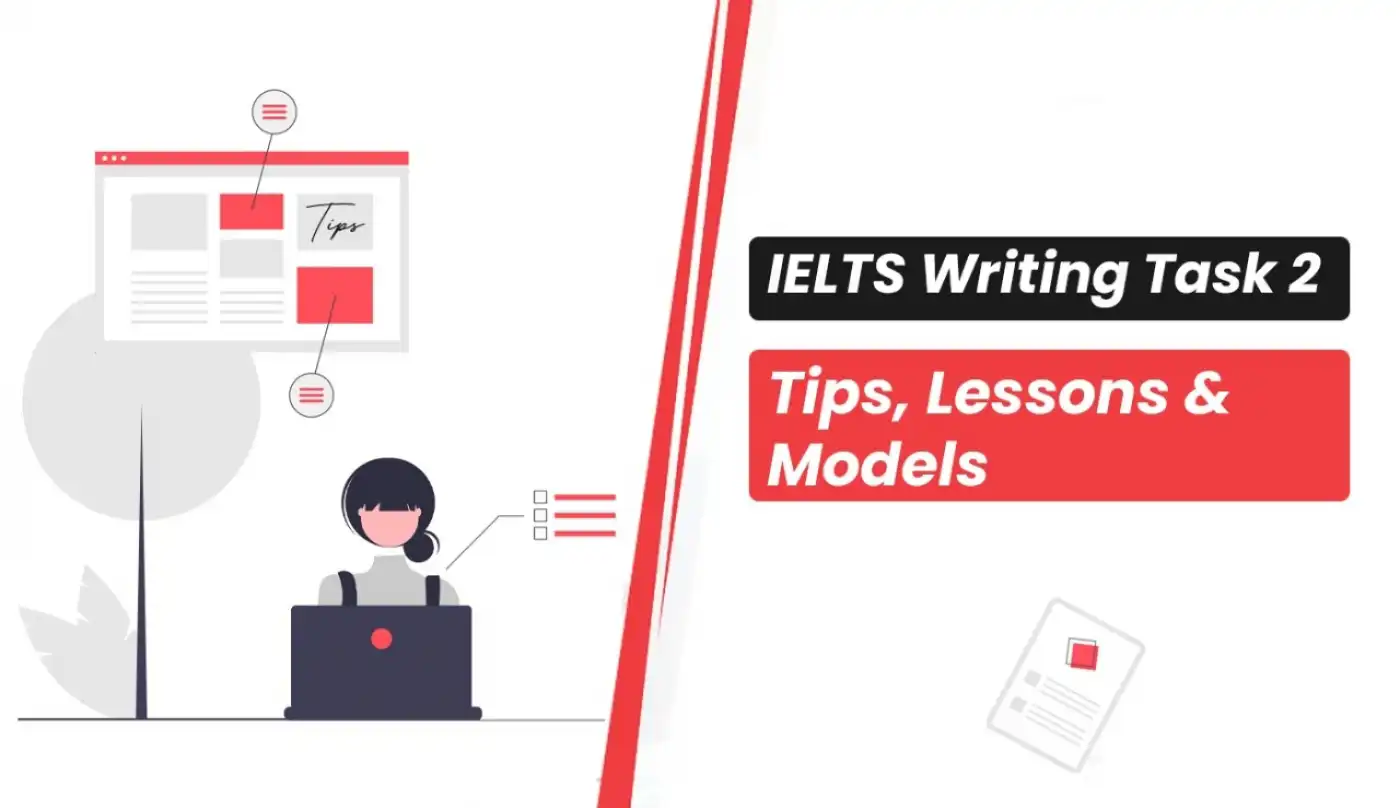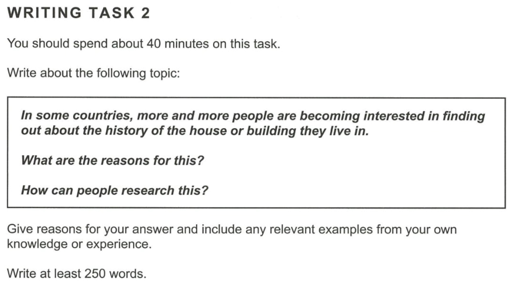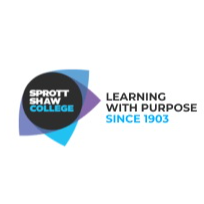• IELTS
IELTS Writing Task 2: Tips, Lessons & Models
9815 Reads
3 min Read
IELTS Writing task 2 is an essay writing question, and there are a few techniques or strategies that can help you tackle each question uniquely and systematically. Any person preparing for IELTS is well aware that Writing can be tricky, as each question has a different theme, and in an actual test, the candidate might come across a question that was never done before.

IELTS Writing task 2 is an essay writing question, and there are a few techniques or strategies that can help you tackle each question uniquely and systematically. Any person preparing for IELTS is well aware that Writing can be tricky, as each question has a different theme, and in an actual test, the candidate might come across a question that was never done before.
The IELTS writing test is relatively easy if you fully understand the concept and can arrange your thoughts into grammatically accurate, well-structured phrases. Canamprep has developed IELTS material to give you access to all the study aids you require, such as practice exams, sample questions and answers, videos, articles, expert reviews, online courses, webinars, and much more. Canamprep, in association with Cambridge University and Press, uses authentic Cambridge material along with their own. You may visit the nearest Canamprep branch today for further details!
Easy tips for IELTS writing task 2
Also read : IELTS Exam type
Lessons for IELTS writing task 2
Here are a few questions as examples:
Also read : IELTS Exam dates
5 Question types for IELTS writing task 2
- Advantages and disadvantages type essay
- Opinion-type essay
- Discussion-type essay
- Two-part question essay/ Direct question essay
- Problem solution essay/ Causes solution essay
Make sure each paragraph contains a clear and developed topic with a minimum of two sentences.
- Begin with a key statement.
- Your point must be supported by the example.
- The evidence must support your point to justify it.
- A link – to the next topic or paragraph is required.
Also read : IELTS Test Centres
Sample answer for IELTS writing task 2
You should spend about 40 minutes on this task.


Write about the following topic:
In some countries, more and more people are becoming interested in finding out about the history of the house or building they live in. What are the reasons for this? How can people research this?
Give reasons for your answer and include any relevant examples from your knowledge or experience.
Write at least 250 words.
This is an answer written by a candidate who achieved a Band 6.0 score.
In our rather futuristic society for many reasons, people are becoming more interested in the past of their hometowns. With the help of rapidly developing technology, their desire to learn about history can be easily put to life. But what are the roots of such eagerness?
First of all, the hectic lifestyle that we all experience nowadays does not leave any space for calmness and peace in our souls, so most people - especially adolescents - are struggling with finding their feet, whilst having a broad spectrum of knowledge about the world around really gives a feeling of confidence in the impermanence of life. In addition to this, it is said that being aware of the past can change the future. Consequently, if people want to live a better life in a more comfortable environment, they have to explore the history of their homes in order not to repeat past mistakes.
For this aim, we are lucky to have multiple tools to carry out research into the subject. Despite libraries being considered an old-fashioned and not necessarily convenient approach to learning, there are quite a few books and magazines which are not available online but which are extremely helpful when it comes to local interests. News, photos, articles, and interviews with different people published in old magazines indeed provide a clear image of past events.
Browsing the internet forums is also a great idea to find new information and make friends with mutual objectives. Putting everything into a nutshell, learning about the history of your place not only builds a sense of confidence but also might have a big impact on our future way of life.
To make sure that all the stages have been properly completed, a checklist should be utilized:
Also read : IELTS Exam fee
Band descriptors for IELTS writing task 2
You will be marked on the following-
- Task Response (25%)
- Coherence and Cohesion (25%)
- Lexical Resource (25%)
- Grammatical Range and Accuracy (25%)
Also read : IELTS Exam registration
FAQ
Get great articles direct to your inbox
The latest news, articles, and resources, sent straight to your inbox every month.
Popular Universities to Study Abroad
World class education waiting for you.

Oxford International Education Group - The University of Notre Dame - Sydney Campus
New South Wales, Australia • 59 Programmes
Tuition Fee : AUD 0-0 / year
.png)
Shorelight Group - University of Portland
Oregon, USA • 48 Programmes
Tuition Fee : USD 29152-54440 / year

Sprott Shaw College - School of Trades Campus
British Columbia, Canada • 14 Programmes
Tuition Fee : CAD 10000-38000 / year

INTO Group - New England College
New Hampshire, USA • 38 Programmes
Tuition Fee : USD 40000-41000 / year

Contra Costa Community College District - Contra Costa College
California, USA • 62 Programmes
Tuition Fee : USD 10000-11000 / year


University at Albany - State University of New York
New York, USA • 215 Programmes
Tuition Fee : USD 29000-30000 / year
.webp)
Alphacrucis University College - Sydney Campus
New South Wales, Australia • 16 Programmes
Tuition Fee : AUD 14000-22500 / year
Popular English Language Proficiency Exams
IELTS Online
- Live Classes
Blogs and Articles
Curated content to keep you updated on the latest education trends, news and more.
Updated on • Jul 17,2025 05:33 PM IST • USA
PTE Accepted Universities in Australia
Updated on • Jul 17,2025 05:09 PM IST • PTE
Part-Time Jobs for International Students in Australia
Updated on • Jul 17,2025 03:44 PM IST • Australia
Updated on • Jul 12,2025 04:02 PM IST • USA
Updated on • Jul 11,2025 11:32 AM IST • Education
CPT vs OPT: Meaning, Difference, and How to Apply
Updated on • Jul 11,2025 10:40 AM IST • USA
Masters in Computer Science in UK: Top Colleges, Eligibility, Scholarships
Updated on • Jul 10,2025 11:29 AM IST • study in the UK
Highest Paying Jobs in the World
Updated on • Jul 08,2025 01:40 PM IST • Study Abroad
MBA in Australia for Indian Students: Best Universities, Requirements, Scholarship, Courses, Jobs
Updated on • Jul 08,2025 01:35 PM IST • Australia
Canada vs Australia: Which Country is Better for Indian Students in 2025?
Updated on • Jul 07,2025 12:46 PM IST • Education
France vs Germany: Which Is Better for International Students?
Updated on • Jun 30,2025 05:15 PM IST • Education
Top 10 Agricultural Universities in USA
Updated on • Jun 27,2025 05:25 PM IST • USA
Most In-Demand Future Careers in 2025
Updated on • Jun 26,2025 04:41 PM IST • Education
How Much Do Nurses Make in the U.S.?
Updated on • Jun 23,2025 03:59 PM IST • USA
Updated on • Jun 21,2025 02:00 PM IST • USA
MBA in UK: Universities, Eligibility, Types, and Career Opportunities
Updated on • Jun 19,2025 04:09 PM IST • UK • study in the UK
Scholarships in France for Indian Students
Updated on • May 29,2025 05:22 PM IST • France
Intakes in Dubai for Indian Students
Updated on • May 27,2025 03:34 PM IST • Study in Dubai
France Student Visa 2025 – Requirements, Fees, Checklist & Application Process
Updated on • May 23,2025 03:36 PM IST • France
MBA in France for Indian Students in 2025
Updated on • May 22,2025 05:35 PM IST • France
Related Blogs and Articles
A little effort to provide an authentic and reliable content for keen readers!!
Updated on • 11-04-2025 • IELTS
Describe Your Hometown IELTS Speaking Part 1 Topic
Updated on • 07-04-2025 • IELTS
PTE vs IELTS : Know the Difference and Which is Easier?
Updated on • 21-03-2025 • IELTS
IELTS Exam Dates 2025 in India
Updated on • 18-01-2025 • IELTS
IELTS Reading Practice Tests 2025: Reading Passage and Sample Questions
Updated on • 15-01-2025 • IELTS
IELTS Letter Writing Topics 2025
Updated on • 15-01-2025 • IELTS
Canada IELTS band requirements 2025
Updated on • 10-01-2025 • IELTS
Updated on • 25-11-2024 • IELTS
Updated on • 21-11-2024 • IELTS
Updated on • 02-11-2024 • IELTS
Linking Words for IELTS Speaking - Word List & Tips
Updated on • 25-10-2024 • IELTS
IELTS Writing Task 2 - Academic and General Topics with Sample Answer
Updated on • 25-10-2024 • IELTS
IELTS Test Report Form (TRF): Number, Tracking, Validity and Sample
Updated on • 25-10-2024 • IELTS
IELTS Speaking Samples and Answers
Updated on • 25-10-2024 • IELTS
Updated on • 25-10-2024 • IELTS
Updated on • 25-10-2024 • IELTS
IELTS Sample Charts for Writing Task 1 Practice
Updated on • 25-10-2024 • IELTS
IELTS GT Writing Task 1/ IELTS Letter Writing
Updated on • 25-10-2024 • IELTS
Updated on • 25-10-2024 • IELTS
How many times is the IELTS exam conducted in a year?
Updated on • 25-10-2024 • IELTS















